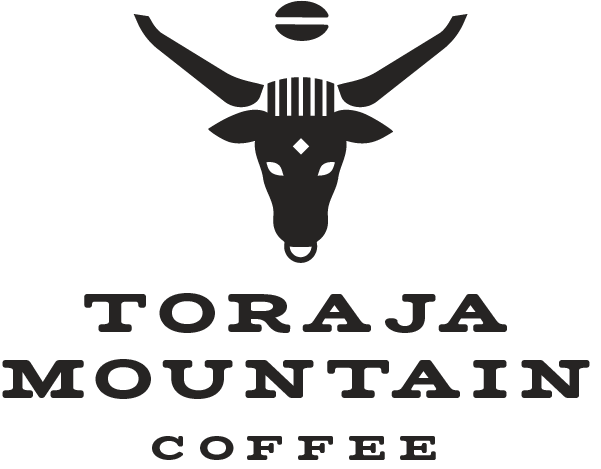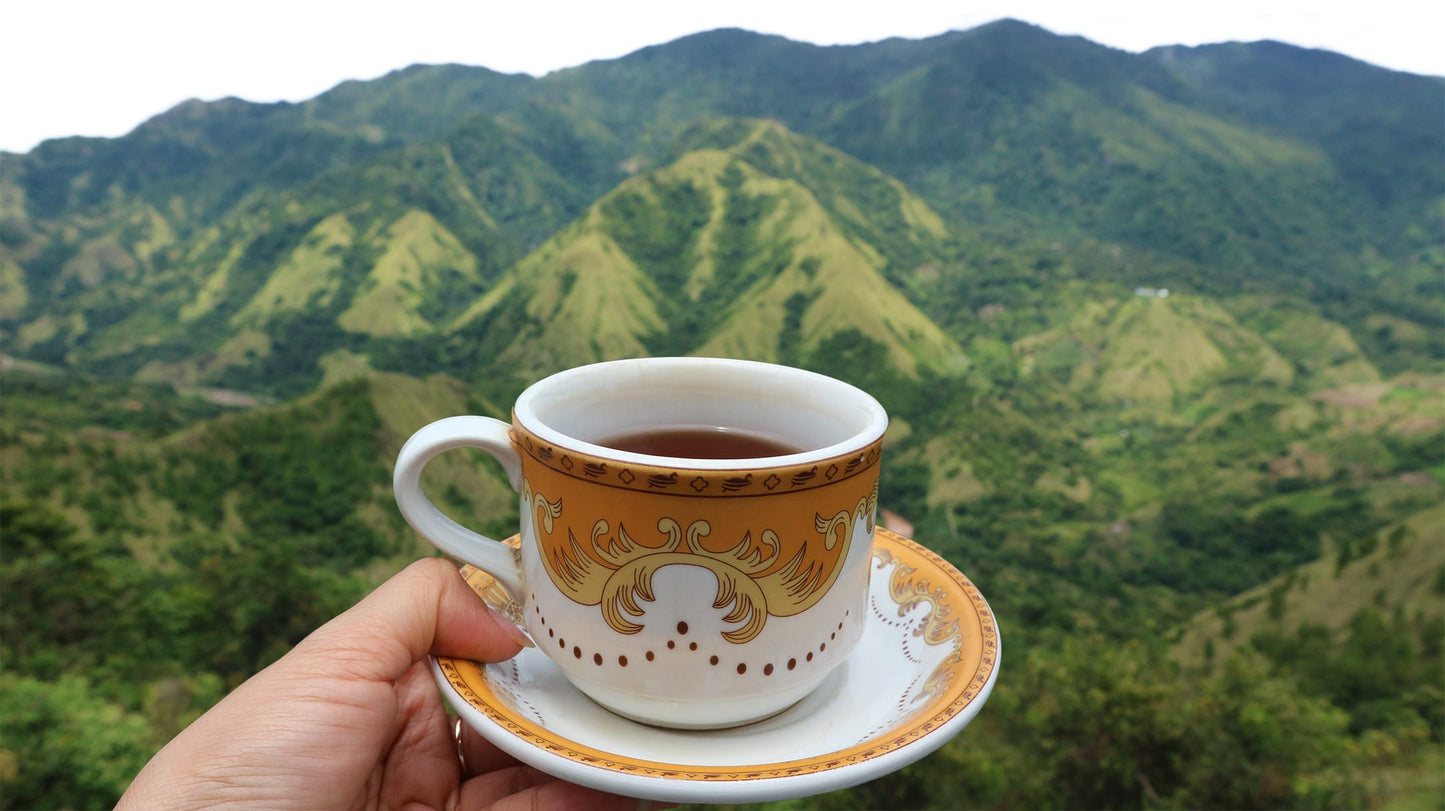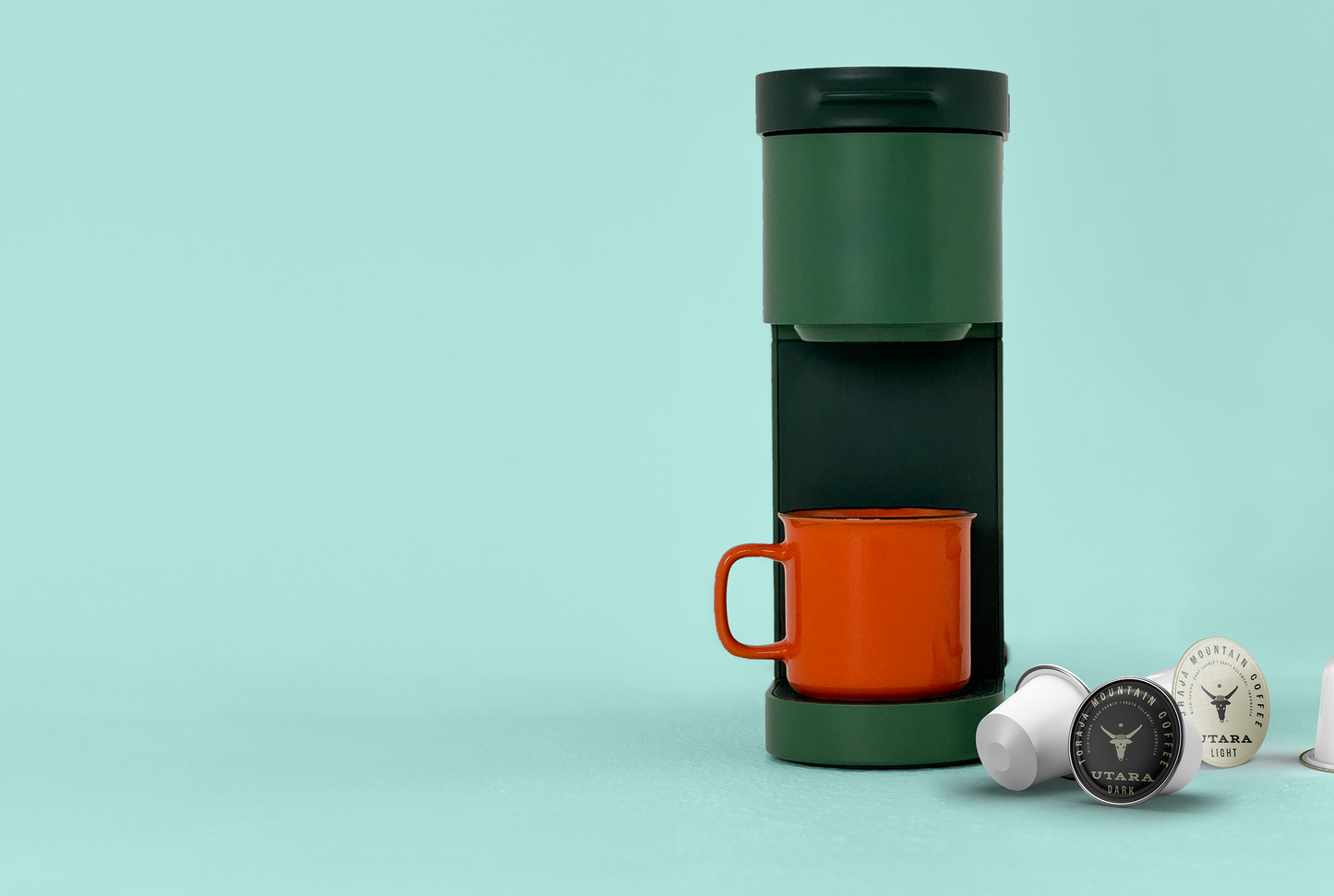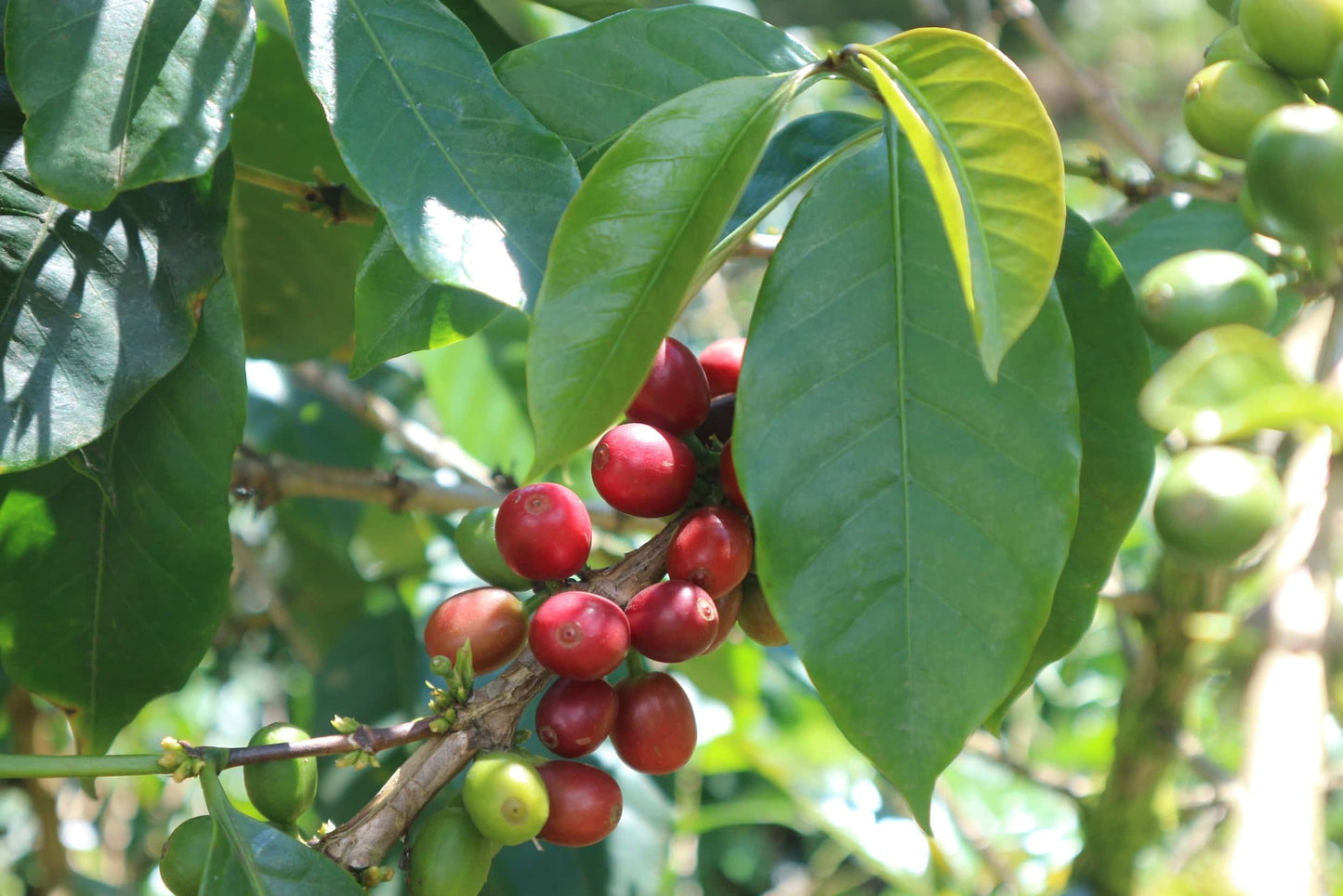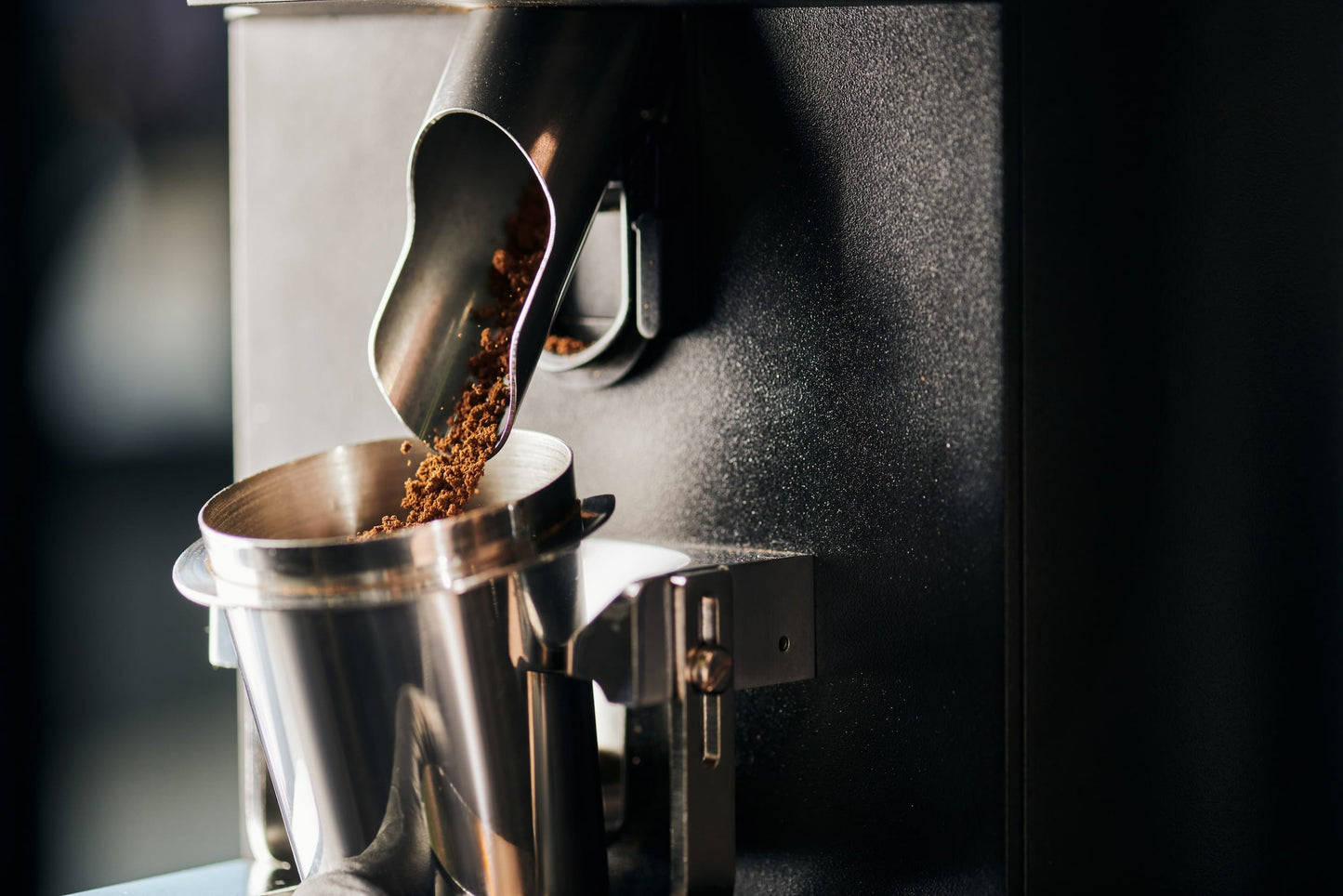All Toraja Mountain Coffees are wild, naturally grown. Detached from outside influence. However, they are heavily influenced by their immediate neighbors in the soil from which they grow. And those neighbors? They’re fruit trees.
It’s an important aspect for our coffee, because those fruit trees are a main reason our coffee tastes so unique and has such a low-acid texture.
But, let’s look at this from a higher point of view.
What makes our coffee different?
Elevation
Anywhere around 1800-2200m above sea level is super ideal. That’s because the bean works hard and the sugars in the beans are contracting. Kinda like working out. In Toraja, the beans get about 6-7 hours of sunlight a day. The rest of the time they’re getting fed with rain.

Fruit Trees
The other trees grown in and around our wild coffee trees add to the taste profile. Durian, chocolate, rambutan, banana, soursop and jackfruit to name a few. The wild coffee trees we grow are nothing like plantations with rows and rows of machine-harvested coffee. The ultra premium coffee we grow is so because (like exceptional wine) it starts with the soil, the location (around the equator), the climate (the amount of sun and rain received) and the other bio factors like surrounding, shady fruit trees.

Natural, Small Farm, Single Origin
In Brazil, Sumatra, Brazil, and other big coffee growing areas that most people recognize are grown on large plantations. These plantations usually cannot meet the required optimal growth conditions for sensitive coffee trees, and you’ll almost never find shade trees on plantations. And certainly not other fruit-producing trees criss-crossed in-between the individual coffee trees. That’s a Toraja Mountain Coffee difference. One you’ll taste everytime.

There’s more to this story of mountain to cup. Branch to brew. And we hope you’re here to follow us every step and sip of the way.
